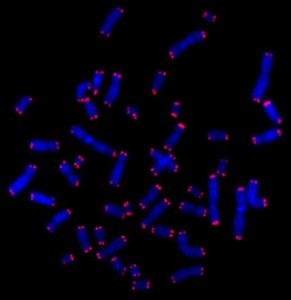 COLLEGE PARK, Md. – A new University of Maryland-led study reveals that racism may impact aging at the cellular level. Researchers found signs of accelerated aging in African American men who reported high levels of racial discrimination and who had internalized anti-Black attitudes. Findings from the study, which is the first to link racism-related factors and biological aging, are published in the American Journal of Preventive Medicine.
COLLEGE PARK, Md. – A new University of Maryland-led study reveals that racism may impact aging at the cellular level. Researchers found signs of accelerated aging in African American men who reported high levels of racial discrimination and who had internalized anti-Black attitudes. Findings from the study, which is the first to link racism-related factors and biological aging, are published in the American Journal of Preventive Medicine.
Racial disparities in health are well-documented, with African Americans having shorter life expectancy, and a greater likelihood of suffering from aging-related illnesses at younger ages compared to whites. Accelerated aging at the biological level may be one mechanism linking racism and disease risk.
“We examined a biomarker of systemic aging, known as leukocyte telomere length,” explained Dr. David H. Chae, assistant professor of epidemiology at UMD’s School of Public Health and the study’s lead investigator. Shorter telomere length is associated with increased risk of premature death and chronic disease such as diabetes, dementia, stroke and heart disease. “We found that the African American men who experienced greater racial discrimination and who displayed a stronger bias against their own racial group had the shortest telomeres of those studied,” Chae explained.
Read more details at UMD.




